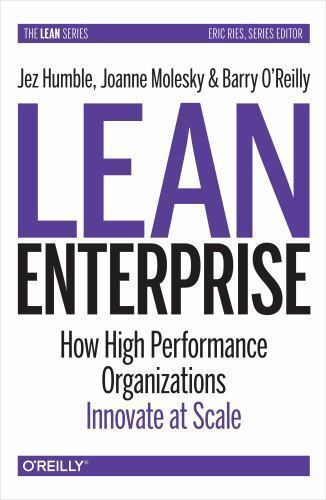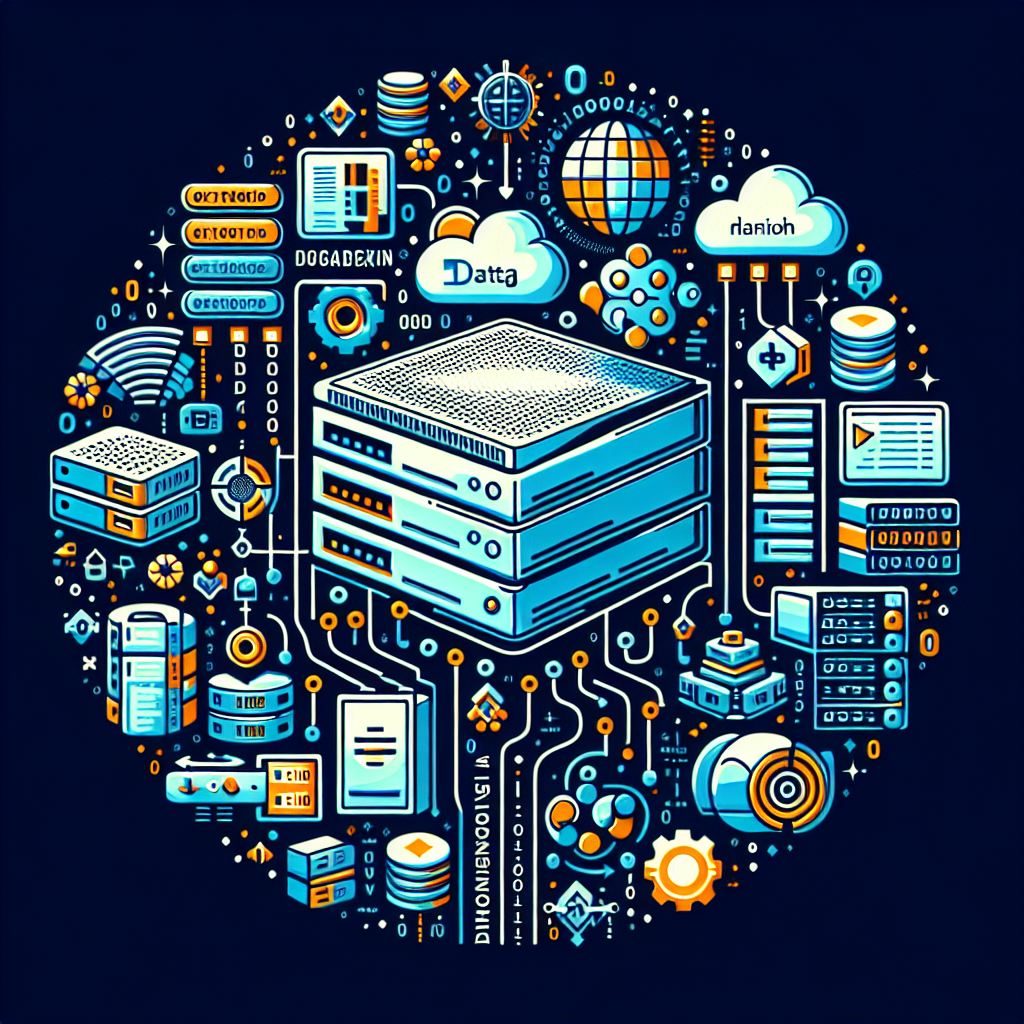Your cart is currently empty!
Tag: Organizations

How Data Center Compliance Benefits Your Organization’s Reputation and Trustworthiness
In today’s digital age, data privacy and security have become paramount concerns for organizations of all sizes. As cyber threats continue to evolve and become more sophisticated, it is essential for businesses to prioritize compliance with data center regulations and standards to protect sensitive information and maintain trust with customers.Data center compliance refers to adhering to a set of rules and regulations that govern the storage, processing, and transmission of data. These regulations are designed to ensure that organizations are following best practices to protect data from unauthorized access, breaches, and other security threats.
One of the key benefits of data center compliance is that it helps to enhance your organization’s reputation and trustworthiness. By demonstrating a commitment to protecting sensitive information and complying with industry standards, you can build trust with customers, partners, and other stakeholders.
When customers know that their data is being handled in a secure and compliant manner, they are more likely to trust your organization with their information. This can lead to increased customer loyalty, repeat business, and positive word-of-mouth recommendations.
In addition, compliance with data center regulations can also help to mitigate the risk of data breaches and other security incidents. By implementing robust security measures and protocols, organizations can reduce the likelihood of unauthorized access to sensitive data, which can have serious consequences for both the organization and its customers.
Furthermore, data center compliance can also help organizations to avoid costly fines and penalties for non-compliance with regulations such as the General Data Protection Regulation (GDPR) or the Health Insurance Portability and Accountability Act (HIPAA). By staying up-to-date with the latest regulatory requirements and ensuring compliance with industry standards, organizations can avoid legal consequences and reputational damage.
Overall, data center compliance is essential for organizations looking to protect sensitive information, build trust with customers, and maintain a strong reputation in the marketplace. By prioritizing compliance and implementing robust security measures, organizations can demonstrate their commitment to data privacy and security, which can ultimately lead to increased trust and confidence from stakeholders.

Lean Enterprise: How High Performance Organizations Innovate at Scale

Lean Enterprise: How High Performance Organizations Innovate at Scale
Price : 5.81
Ends on : N/A
View on eBay
Lean Enterprise: How High Performance Organizations Innovate at ScaleIn today’s rapidly changing business landscape, innovation is key to staying ahead of the competition. High performance organizations understand that in order to thrive, they must continuously adapt and evolve. One methodology that has proven to be successful in fostering a culture of innovation at scale is Lean Enterprise.
Lean Enterprise is a strategic approach that helps organizations streamline their processes, eliminate waste, and improve efficiency. By focusing on delivering value to customers and continuously improving operations, high performance organizations are able to innovate faster and more effectively.
One of the key principles of Lean Enterprise is the concept of “lean thinking,” which emphasizes the importance of eliminating waste and maximizing value. This mindset encourages organizations to constantly seek out new ways to improve their processes and products, ultimately leading to greater innovation and competitiveness.
High performance organizations that embrace Lean Enterprise are able to scale their innovation efforts by empowering employees at all levels to contribute ideas and take ownership of their work. By creating a culture of experimentation and learning, these organizations are able to quickly test and implement new ideas, leading to faster innovation and improved outcomes.
In conclusion, Lean Enterprise is a powerful methodology that enables high performance organizations to innovate at scale. By embracing lean thinking and creating a culture of continuous improvement, these organizations are able to stay ahead of the competition and drive meaningful change in their industries.
#Lean #Enterprise #High #Performance #Organizations #Innovate #Scale
How DCIM Helps Organizations Optimize Their Data Center Operations
Data Center Infrastructure Management (DCIM) software has become an essential tool for organizations looking to optimize their data center operations. With the increasing complexity and size of data centers, it has become crucial for businesses to efficiently manage and monitor their infrastructure to ensure maximum efficiency and uptime.DCIM software provides organizations with a centralized platform to monitor, manage, and optimize their data center infrastructure. It offers real-time insights into the performance of servers, storage, networking equipment, and power distribution units, allowing IT teams to identify and address potential issues before they escalate.
One of the key benefits of DCIM is its ability to improve energy efficiency in data centers. By monitoring power consumption and cooling systems, organizations can identify areas where energy is being wasted and make adjustments to reduce their carbon footprint and lower operating costs.
DCIM software also helps organizations make informed decisions about capacity planning and resource allocation. By tracking data center assets and their usage, IT teams can identify underutilized resources and optimize their infrastructure to meet current and future demands.
Furthermore, DCIM software provides organizations with a comprehensive view of their data center operations, allowing them to identify trends and patterns that can help improve overall performance and reliability. By analyzing data center metrics and KPIs, organizations can make data-driven decisions to optimize their infrastructure and ensure maximum uptime.
Overall, DCIM software plays a crucial role in helping organizations optimize their data center operations. By providing real-time insights, improving energy efficiency, and enabling better capacity planning, DCIM software empowers businesses to efficiently manage their infrastructure and ensure the smooth operation of their data centers. With the increasing importance of data centers in today’s digital economy, investing in DCIM software is essential for organizations looking to stay competitive and maximize their IT investments.

How Data Center Risk Assessment Can Help Organizations Prepare for Unexpected Events
In today’s digital age, data centers play a crucial role in the operations of organizations. They serve as the backbone of IT infrastructure, storing and processing vast amounts of data critical to business operations. However, data centers are not immune to unexpected events such as natural disasters, cyber attacks, power outages, or equipment failures. These events can have catastrophic consequences on data center operations, leading to data loss, downtime, and financial losses.To mitigate the impact of unexpected events on data center operations, organizations need to conduct a thorough risk assessment. A data center risk assessment involves identifying potential risks, evaluating their likelihood and impact, and implementing strategies to mitigate or manage these risks. By conducting a risk assessment, organizations can better prepare for unexpected events and ensure the continuity of their data center operations.
One of the key benefits of conducting a data center risk assessment is that it helps organizations identify vulnerabilities in their data center infrastructure. By understanding potential risks, organizations can take proactive measures to strengthen their data center security and resilience. This may include implementing redundant systems, backup power sources, fire suppression systems, and physical security measures to protect against unauthorized access.
Moreover, a data center risk assessment can help organizations prioritize resources and investments to address the most significant risks. By identifying high-risk areas, organizations can allocate resources strategically to minimize the impact of unexpected events on data center operations. This may involve investing in disaster recovery planning, cybersecurity measures, and employee training to ensure a prompt and effective response to unexpected events.
Furthermore, a data center risk assessment can help organizations comply with regulatory requirements and industry standards. Many industries have specific regulations governing data center operations, such as the Health Insurance Portability and Accountability Act (HIPAA) for healthcare organizations or the Payment Card Industry Data Security Standard (PCI DSS) for companies handling credit card data. By conducting a risk assessment, organizations can identify gaps in compliance and take corrective action to avoid penalties and reputational damage.
In conclusion, data center risk assessment is an essential tool for organizations to prepare for unexpected events and ensure the continuity of their data center operations. By identifying vulnerabilities, prioritizing resources, and achieving compliance with regulations, organizations can enhance the security and resilience of their data center infrastructure. Investing in a comprehensive risk assessment can ultimately save organizations time, money, and reputation in the event of an unexpected event.

How DCIM is Revolutionizing the Way Organizations Manage and Monitor Data Centers
Data centers are the backbone of modern organizations, housing the servers and network equipment that power their operations. As the amount of data generated and stored by businesses continues to grow exponentially, the need for efficient management and monitoring of data centers has never been more critical.Data Center Infrastructure Management (DCIM) is a software solution that is revolutionizing the way organizations manage and monitor their data centers. DCIM provides a comprehensive view of the entire data center infrastructure, including power, cooling, space, and connectivity. This holistic view allows organizations to optimize their data center operations, improve energy efficiency, and reduce costs.
One of the key benefits of DCIM is its ability to provide real-time monitoring of data center performance. By collecting data from sensors and devices throughout the data center, DCIM software can provide insights into the health and performance of critical infrastructure components. This real-time monitoring allows organizations to proactively address issues before they escalate into costly outages.
DCIM also helps organizations improve energy efficiency by providing visibility into power consumption and thermal conditions within the data center. By analyzing this data, organizations can identify opportunities to reduce energy consumption, optimize cooling systems, and lower operating costs.
In addition to monitoring and optimization, DCIM also helps organizations with capacity planning and asset management. By providing a centralized repository of information on data center assets, including servers, storage devices, and networking equipment, DCIM software enables organizations to more effectively allocate resources, plan for future growth, and track asset lifecycles.
Overall, DCIM is transforming the way organizations manage and monitor their data centers. By providing real-time monitoring, energy efficiency improvements, and enhanced capacity planning capabilities, DCIM software is helping organizations maximize the performance and reliability of their data center infrastructure. As the volume of data continues to grow, DCIM will play an increasingly important role in helping organizations stay ahead of the curve and ensure the smooth operation of their critical IT infrastructure.

NetApp Storage: Streamlining Data Management for Organizations
In today’s digital age, data has become one of the most valuable assets for organizations. With the exponential growth of data being generated and stored, managing and protecting this data has become a top priority for businesses of all sizes. This is where NetApp Storage comes into play, offering a comprehensive solution for streamlining data management for organizations.NetApp Storage is a leading provider of storage and data management solutions, helping organizations simplify their IT infrastructure and reduce costs. With NetApp Storage, organizations can store, manage, and protect their data effectively, ensuring seamless access and availability at all times.
One of the key features of NetApp Storage is its scalability. As organizations grow and their data storage needs increase, NetApp Storage can easily scale to accommodate the growing demands. This scalability ensures that organizations can continue to store and manage their data efficiently without having to worry about running out of storage space.
Another important aspect of NetApp Storage is its data protection capabilities. With advanced features such as data deduplication, snapshotting, and replication, organizations can ensure that their data is safe and secure at all times. In the event of a disaster or data loss, NetApp Storage allows for quick and easy data recovery, minimizing downtime and ensuring business continuity.
NetApp Storage also offers advanced data management capabilities, allowing organizations to easily organize and categorize their data for easy access and retrieval. With features such as data tiering and automated data management policies, organizations can ensure that their data is stored in the most efficient and cost-effective manner.
Overall, NetApp Storage provides organizations with a comprehensive solution for streamlining data management. By leveraging the advanced features and capabilities of NetApp Storage, organizations can effectively store, manage, and protect their data, ensuring seamless access and availability at all times. With NetApp Storage, organizations can focus on their core business activities, knowing that their data is in safe hands.

NetApp Storage: Empowering Organizations to Thrive in the Digital Age
In today’s digital age, organizations are faced with the challenge of managing and storing large amounts of data in a secure and efficient manner. With the rise of big data, cloud computing, and artificial intelligence, the need for reliable storage solutions has never been greater. NetApp Storage is a leading provider of storage solutions that empower organizations to thrive in this digital landscape.NetApp Storage offers a range of products and services designed to meet the diverse needs of businesses of all sizes. From small businesses to large enterprises, NetApp Storage has a solution to help organizations store, manage, and protect their data effectively. With features such as data deduplication, data compression, and data tiering, NetApp Storage allows organizations to maximize their storage efficiency and reduce costs.
One of the key benefits of NetApp Storage is its scalability. As organizations grow and their data storage needs increase, NetApp Storage can easily scale to accommodate the additional data without compromising performance or reliability. This scalability is essential for organizations that are looking to expand their operations and take advantage of new technologies such as machine learning and internet of things.
In addition to scalability, NetApp Storage also offers advanced data protection features to ensure that organizations can keep their data safe and secure. With features such as data encryption, data replication, and data backup, organizations can rest assured that their critical data is well-protected against cyber threats and data loss.
Furthermore, NetApp Storage also provides organizations with the flexibility to choose the deployment model that best suits their needs. Whether organizations prefer on-premises storage, cloud storage, or a hybrid storage solution, NetApp Storage offers a range of options to meet their specific requirements.
Overall, NetApp Storage is a powerful storage solution that empowers organizations to thrive in the digital age. With its scalability, advanced data protection features, and deployment flexibility, organizations can rely on NetApp Storage to store, manage, and protect their data effectively. As organizations continue to embrace digital transformation, NetApp Storage will play a crucial role in helping them succeed in this ever-evolving digital landscape.

Choosing the Right Data Center Security System for Your Organization’s Needs
In today’s digital age, data security is paramount for organizations of all sizes. With cyber threats on the rise, it is crucial to have a robust data center security system in place to protect valuable information and prevent unauthorized access. Choosing the right data center security system for your organization’s needs is a critical decision that should not be taken lightly.When considering which security system to implement, there are several factors to take into account. One of the first things to consider is the level of physical security that is needed for your data center. This includes measures such as access control, surveillance cameras, and biometric authentication systems. Depending on the sensitivity of the data stored in your data center, you may need to implement additional security measures such as mantraps or security guards.
Another important consideration is the level of network security that is needed. This includes firewalls, intrusion detection systems, and encryption protocols to protect data as it is transmitted across the network. It is also important to regularly update and patch software to prevent vulnerabilities that could be exploited by cyber attackers.
In addition to physical and network security measures, it is also important to consider the scalability and flexibility of the data center security system. As your organization grows and evolves, your security needs will also change. It is important to choose a security system that can adapt to these changing needs and provide the necessary level of protection.
Cost is also an important factor to consider when choosing a data center security system. While it is important to invest in a robust security system to protect your organization’s data, it is also important to ensure that the system is cost-effective and provides value for money.
Ultimately, the right data center security system for your organization’s needs will depend on a variety of factors including the sensitivity of the data stored, the level of security required, and the budget available. By carefully considering these factors and working with a trusted security provider, you can ensure that your organization’s data is protected against cyber threats and unauthorized access.

Exploring the Benefits of NetApp Storage for Enterprise Organizations
In today’s digital world, data is the lifeblood of any organization. From customer information to financial records, companies rely on their data to make informed decisions and drive business growth. As the volume of data continues to grow exponentially, enterprise organizations are constantly seeking ways to efficiently store, manage, and access their data. This is where NetApp storage solutions come into play.NetApp is a leading provider of storage and data management solutions for enterprise organizations. With a range of products and services tailored to meet the unique needs of businesses, NetApp is a trusted partner for companies looking to optimize their data storage infrastructure.
One of the key benefits of NetApp storage solutions is their scalability. As businesses grow and their data storage needs increase, NetApp offers a range of storage options that can easily scale to meet the demands of even the largest enterprise organizations. Whether it’s a small business looking to expand its data storage capabilities or a large corporation looking to consolidate its storage infrastructure, NetApp has a solution that can meet the needs of any organization.
Another benefit of NetApp storage solutions is their reliability. With a reputation for high-performance and reliability, NetApp storage systems are designed to ensure that data is always available when it’s needed. This is crucial for enterprise organizations that rely on their data to make critical business decisions and drive growth.
In addition to scalability and reliability, NetApp storage solutions also offer advanced data management features. From data deduplication and compression to snapshot and replication capabilities, NetApp provides enterprise organizations with the tools they need to efficiently manage and protect their data. This can help businesses reduce storage costs, improve data security, and streamline data management processes.
Overall, NetApp storage solutions provide enterprise organizations with a range of benefits that can help them optimize their data storage infrastructure and drive business growth. From scalability and reliability to advanced data management features, NetApp is a trusted partner for companies looking to stay ahead in today’s data-driven world. By investing in NetApp storage solutions, enterprise organizations can ensure that their data is always available, secure, and easily accessible, giving them a competitive edge in today’s fast-paced business environment.

How DCIM is Transforming the Way Organizations Manage their Data Centers
Data center infrastructure management (DCIM) is revolutionizing the way organizations manage their data centers. With the increasing complexity and size of data centers, organizations are turning to DCIM solutions to streamline operations, optimize efficiency, and improve overall performance.DCIM software provides real-time monitoring and management of data center infrastructure, including power, cooling, and space utilization. By collecting and analyzing data from various sensors and devices, DCIM solutions enable organizations to make informed decisions and take proactive measures to prevent downtime and optimize resource utilization.
One of the key benefits of DCIM is its ability to improve energy efficiency. By monitoring power consumption and cooling systems, organizations can identify inefficiencies and implement strategies to reduce energy consumption and lower operating costs. This not only helps organizations save money but also reduces their carbon footprint, making their data centers more environmentally friendly.
In addition to energy efficiency, DCIM solutions also help organizations optimize space utilization. By providing real-time visibility into data center assets and their physical location, organizations can make better use of available space and prevent overutilization of resources. This ensures that data centers are operating at maximum capacity and can accommodate future growth without the need for additional investments in infrastructure.
Furthermore, DCIM solutions offer comprehensive reporting and analytics capabilities, allowing organizations to track key performance indicators, monitor trends, and identify areas for improvement. By analyzing data center metrics and performance data, organizations can identify bottlenecks, optimize workflows, and make data-driven decisions to improve overall performance.
Overall, DCIM is transforming the way organizations manage their data centers by providing real-time visibility, optimizing resource utilization, improving energy efficiency, and enabling data-driven decision-making. As data centers continue to grow in size and complexity, DCIM solutions will become essential tools for organizations looking to streamline operations, reduce costs, and improve performance.
